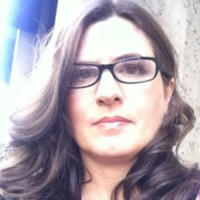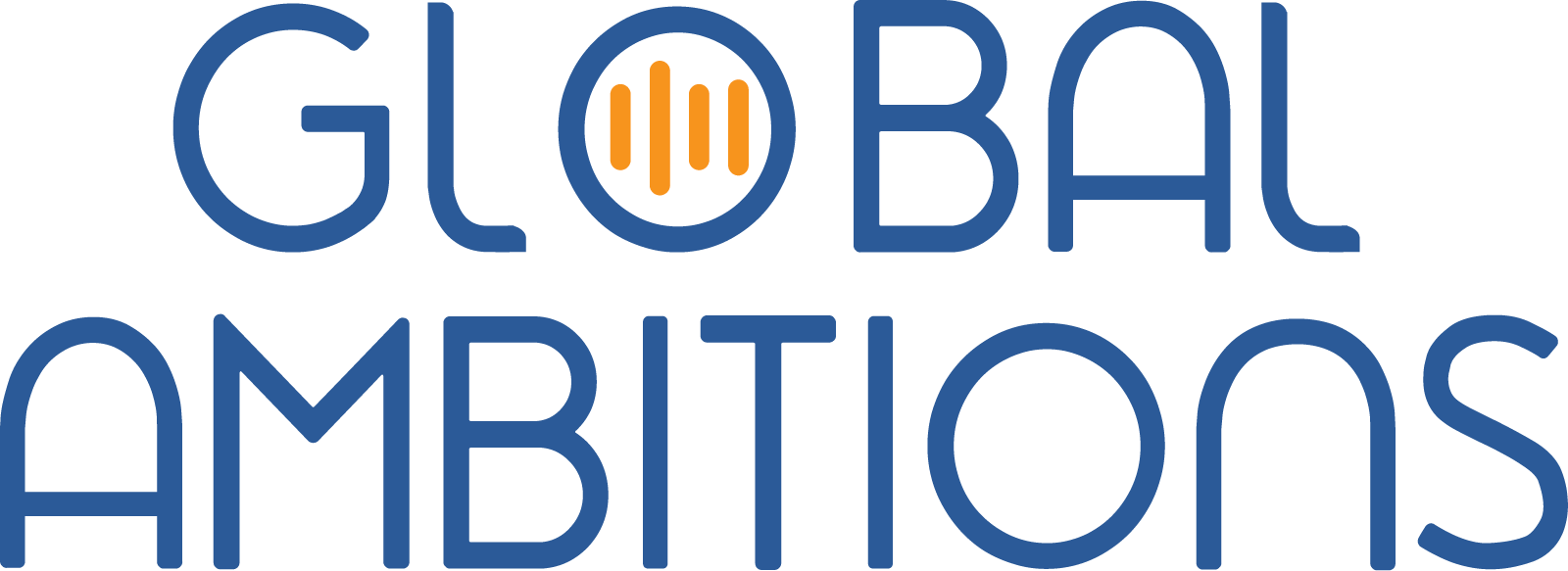With Leah Mori, Head of Localization – Product at BOLD
Below is a full transcript of this episode
Kim Shouler
Hi, everyone. My name is Kim Shouler and I am delighted to bring you the Global Ambitions podcast for today. Today’s guest is Leah Mori. She’s the head of localization at BOLD Life Careers. Hi, Leah.
Leah Mori
Hi. Thank you for having me.
Kim Shouler
You’re very welcome. Now, Leah is going to talk to us today about the international go-to-market initiatives that she’s been working on at BOLD Life Career. So it’d be great if you could start off and just tell us a bit more about your journey and your role today.
Leah Mori
Sure. So I started in this field, that I love, as a linguist. And then became a QA, eventually got certified to become a localization project manager, and worked on many different products, and then eventually landed in my last role as a leading localization here at BOLD. BOLD Life Career is a global company headquartered in San Francisco and provides a template solution for products such as resume content, cover letters, and other job search solution. We are present in more than one hundred and eighty countries and have helped millions of job seekers find their dream job. And actually, the mission is to help job seekers transform their work lives. So definitely when I joined, I loved the product at first sight because we have so many cultural specifications and I love culture. In my work and in my life.
Kim Shouler
I’m sure that, you know, our audience here would love to hear a bit more about your experiences. And in particular, would you be able to let us know what the biggest challenge has been so either in your career to date or in your role now?
Leah Mori
Sure, so recognizing that a product needs more culture than another product. It’s it’s fine, right? Especially if you’re familiar with what needs to be done. But A, how to broadcast that need is a little more difficult. Culture is not something you can really see and prove. It is not like a letter or something is more of what is not said or is more like our body language. So definitely that challenge is really present when we have products that are already established and maybe they are established in one part of the world and then they need to go to all the rest of the world. And that is when cultural issues may occur.
In the case of a resume, the resume is something so intimate. It is an intimate experience that the individual goes to broadcast to people he or she does not know. So it’s this experience of presenting the self to somebody you don’t know. So definitely it is a cultural approach. And if you are applying within your country is one thing. If you are applying to go and work because of job mobility to a different country is also another experience.
Perhaps in a resume, we do present ourselves with a picture or without a picture. Just that is something to think about, that picture. How are we going to smile? That smiling is definitely a sign of culture. Some cultures smile with all our big smile and some other ones, you know, will keep it really brief on that one. And so how can you define what your metric is and how do you decide that? You have to do a lot of research and then prove that there is a trend and then implement that trend. It seems very easy. But we know that in a new world, in a new digital world where we test everything, it may become a little more challenging.
Kim Shouler
So, yeah, it’s very interesting what you say, especially when it comes to content that’s really personal for the end-user.
Leah Mori
So if you’ve got a CV, it’s someone’s career, it’s the details they’re putting out there. So I think that’s a very interesting point. And it must be something that you really have to bear in mind that this is such a personal, emotional thing, is totally emotional. And also how you describe your emotions and how you read emotions on the page is a totally different experience.
I want to give you like a few different example wording that we used here in the US. We have a different attitude toward getting a job. A job maybe represents our self and maybe the job is a dream job. We talked about a dream job. So when we go to Europe, that dream job is not anymore a dream job because the concept of getting a job is different. It’s more a desired job. So how you calibrate between dream and decide what is the path that goes from dream to desire is a really interesting path. That makes us different in the way we express, you know, our needs.
So perhaps for Europe, the desired job would be more what it is. In the US it is the idea, right? The idea is so big. So dreaming is a big thing. For Europeans, maybe, you know, it’s more like having something that fits with your life and doesn’t take over your life. So we have different weights that we put on words and how to crystallize those needs on a Web page is very important.
Kim Shouler
So I’d like to ask, when you arrived at BOLD Life Career, was everything localized? Did you start from scratch? And were there any challenges relating to that that you found along the way?
Leah Mori
Yes, actually, when I joined BOLD, many of the products were localized and they were localized correctly. But the engagement wasn’t exactly what we expected it to be. And so I think when you have that situation, at least in my case, I went through a cultural audit and I really dug into all the experiences and with many different pair of eyes.
And sometimes taking the visual aside and having only the text running through, you understand what would you expect with a visual. And sometimes having the visual isolated and expect what would you have as a text that will explain that visual. Just to crosscheck that visual and text will be on the same page. That they would sync. So definitely, if you think that product needs more culture, it’s really nice to do a cultural assessment and bring many subject matter expert in it. Because everyone will pitch in one or two ideas and then you will have a global understanding of what is missing at a global flavor and what is typical of that particular locale.
Kim Shouler
So really getting some teamwork between the linguists and the subject matter experts.
Leah Mori
Cross collaboration is, number one in localization. This is how we thrive, right?
Kim Shouler
Yeah, yeah. That’s a great tip. So I’m sure our listeners would love to know, is there something that you would pass on for them to be mindful of? So anyone in a similar role, similar position, what mistakes were made or what along the way would you issue a warning about?
Leah Mori
Yes. So localization is language and culture, but we often forget the cultural part. We think it goes together within the language we offer, but it’s not that way. And as a localization person walking in a company and talking about culture, it is interesting, but it is not a measurable metric from the get-go. So culture has to be introduced in terms of differences instead. You know, opening different programs that they can highlight those differences and eventually get to discoveries and findings by all stakeholders. Because we know that that is what maybe that product needs, but how we can bring it to the table in a way that is understood, that is a totally different thing.
So I don’t think that by just mentioning culture you will be heard because it doesn’t tell, you know, all your KPIs or your OKRs so so you will have to work in unfolding culture. What is culture for that specific product and how you reach it is a whole path of understanding?
Kim Shouler
Yeah, that’s interesting. And internally as well. How have you managed the team to be able to overcome these challenges? Anywhere you’ve had particular success in what you’re doing that you could pass on to people and say it’d be great if you could replicate that?
Leah Mori
Yes, absolutely. So we know as a fact that when we have a startup is we might have research on board, but we might not have international research on board. And we might just rely on vendors that could give us insights, but not exactly strictly aligned with our products, but maybe more generic insights. What has been very successful for our team, for the localization team is to first bring all the stakeholders together from the get-go favoring absolutely the engineer team as a major stakeholder because maybe a feature works. Yes. But if we have Dev and we have product and then we have us and with us, I mean the linguist, we can provide valuable feedback before even the feature gets in the work. So that is what the second one is.
We think of our linguist. People that are in libraries and maybe they have a huge dictionary and they go through pages and pages, Sitting there with a dictionary, yeah. But actually a linguist in 2021, they work mostly on digital products and they are aware of nuances. So getting the linguist on panels with all the stakeholders is invaluable. I mean, that’s a great value right there. And also having conversations with all the languages included on the same panel can really highlight the opportunities. Can really highlight language being the number one feature to express a product through the words or the culture instead of translating whatever it was originally and put it in a visual context, that seems to be the right one, but after all, will not be engaging enough that user.
Kim Shouler
Yeah. So the last thing I’d like to ask you really is whether there’s anyone that you think would be a great guest for us or whether there’s a particular topic that you would love to see our localization and go-to-market podcast about? Is there anything you’d like to suggest to us?
Leah Mori
Absolutely. So one of my challenges, that I’ve been literally studying a lot and informing myself a lot about are subscription models. I worked with many companies having a subscription model and at BOLD we do have a subscription model as well. But subscription models are very cultural in the way we pay and the way we like to pay is very different around the world. And a subscription… to keep me on a subscription, I need to be very motivated. And that motivation comes from our cultural insights. So I would want to see a subscription specialist, a pricing specialist that would link culture and money. Because money is another value that we have in different cultures and we approach that value in very different ways. So I would definitely want to see that.
Kim Shouler
Well, that would be great. We’ll keep an eye out. And if any of our listeners know anyone, then they can drop us a line. We’d love to have that on the next podcast. That’s great. Well, thank you very much, Leah. It’s been great. It’s been really nice to have you.
Leah Mori
It’s been very interesting. Thank you for having me.

Leah Mori
Head of Localization – Product at BOLD




